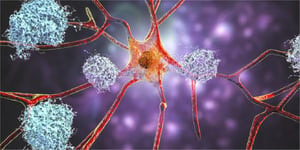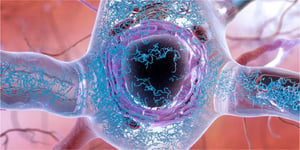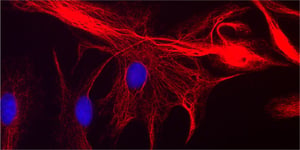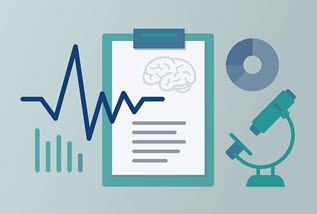
SCIENCE
Learn the Latest Information and Science-backed Methods of Prevention and Testing
Make Scientifically Informed Decisions About Your Health
BrainHealth offers non-invasive and scientifically validated methods of Alzheimer's support and prevention. We empower individuals to be proactive about their health with genetic and biomarker tests for early detection and monitoring of Alzheimer’s and other neurodegenerative conditions.
Medical literature can be dauntingly technical, so we break down the latest findings for you. It is our goal to allow you to make fully informed decisions about your own brain health and medical care.

What Causes Alzheimer’s?
The exact causes of Alzheimer's disease aren't yet fully understood, but we are learning more every day. At a basic level, Alzheimer's disease results from damage to brain cells called neurons, which lose connections to one another and eventually die. The destruction can lead to memory impairment, personality changes, problems carrying out daily activities, and other neurological symptoms.
Researchers trying to understand the exact causes of Alzheimer's disease are focused on two protein formations that appear to play a critical role in blocking communication between nerve cells and disrupting essential neurological processes:
- PLAQUES are deposits of a protein fragment called "beta-amyloid" that build up in the spaces between nerve cells. When these fragments cluster together, they appear to have a toxic effect on neurons and to disrupt cell-to-cell communication.
- TANGLES are twisted fibers of a protein called "tau" that plays a part in a neuron's internal support and nutrient transport system. With Alzheimer's disease, tau proteins distort and organize into structures called "neurofibrillary tangles" that are toxic to cells.
What is the Science Behind Biomarkers and Brain Health?
BrainHealth is developing new methods of identifying and tracking biomarkers for neurodegenerative disease, including Alzheimer’s, Parkinson’s, multiple sclerosis, and traumatic brain injury.
Among others, proteins such as amyloid beta (Aβ), tau, neurofilament-light (NfL), and glial fibrillary acidic protein (GFAP) can signify abnormalities, inflammation, and dysfunction in the brain, and are available for measurement in plasma. BrainHealth is developing a family of tests that when used singly or together in various combinations can help doctors assess a patient’s neurological condition more accurately or more cost effectively than methods currently available.
Principal Biomarkers for Neurodegeneration

The hallmark sign of Alzheimer’s disease, Amyloid beta shows up early in the blood and as a plaque in the brain.

Amyloid beta accumulation appears to trigger an increase of pTau and attendant synaptic dysfunction. As Alzheimer's progresses, pTau continues to increase.

Neuronal injury is a general biomarker of the degeneration in the brain associated with Alzheimer’s, Parkinson’s, multiple sclerosis, and traumatic brain injury.

GFAP is a sign of neuroinflammation in the central nervous system, including as a result of stroke and traumatic brain injury. It is elevated in the earlier stages of neurodegeneration.








